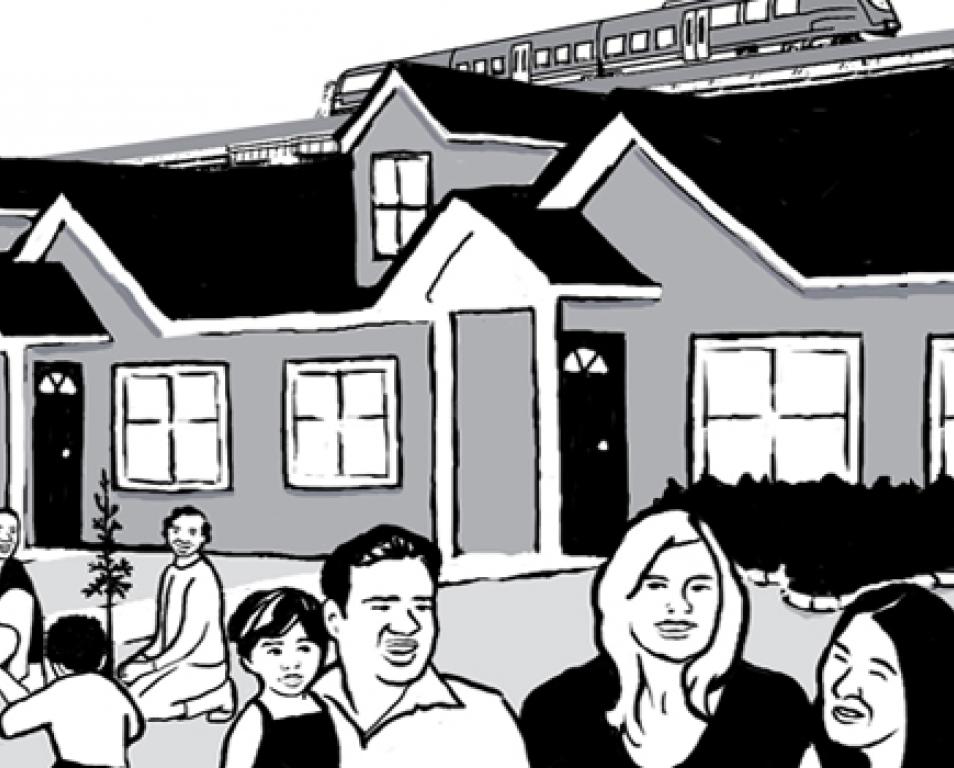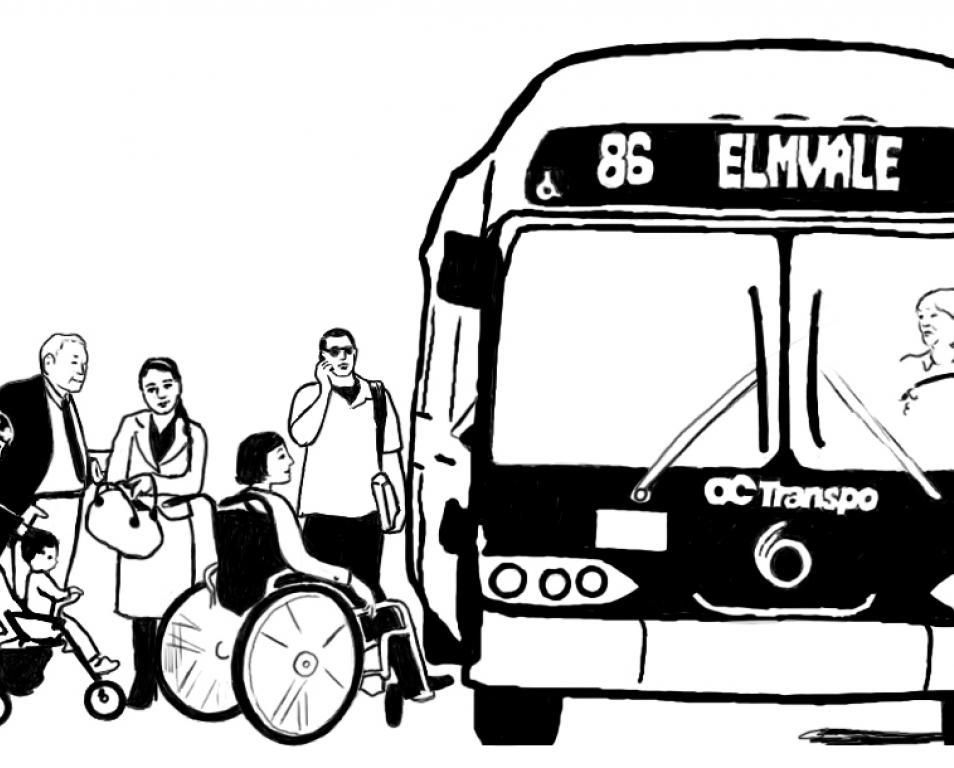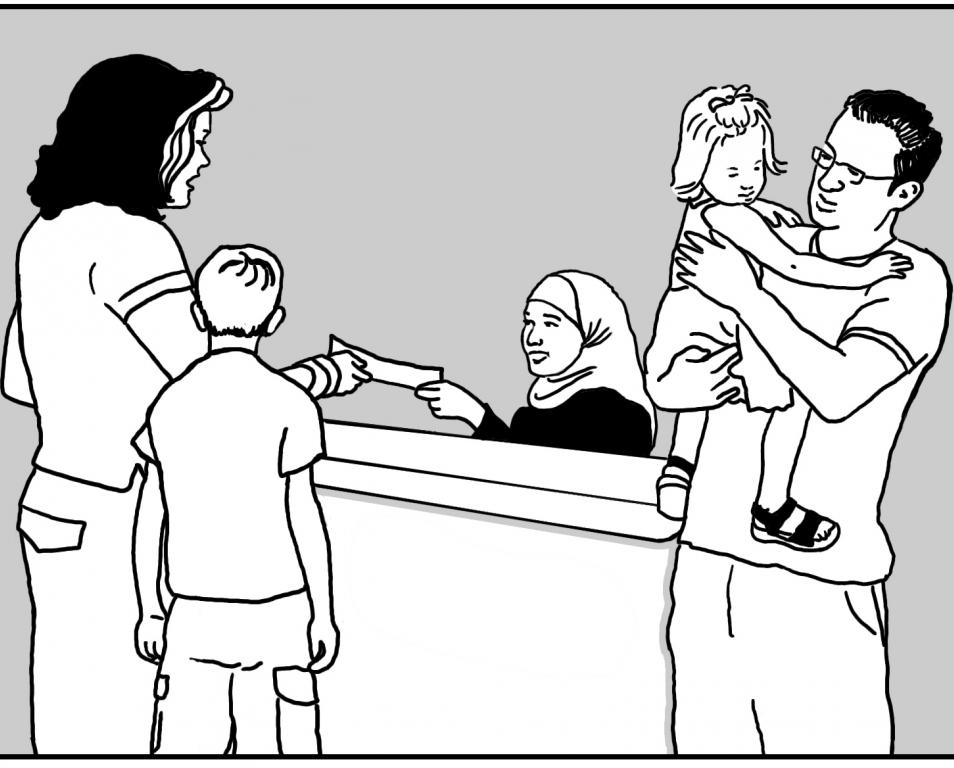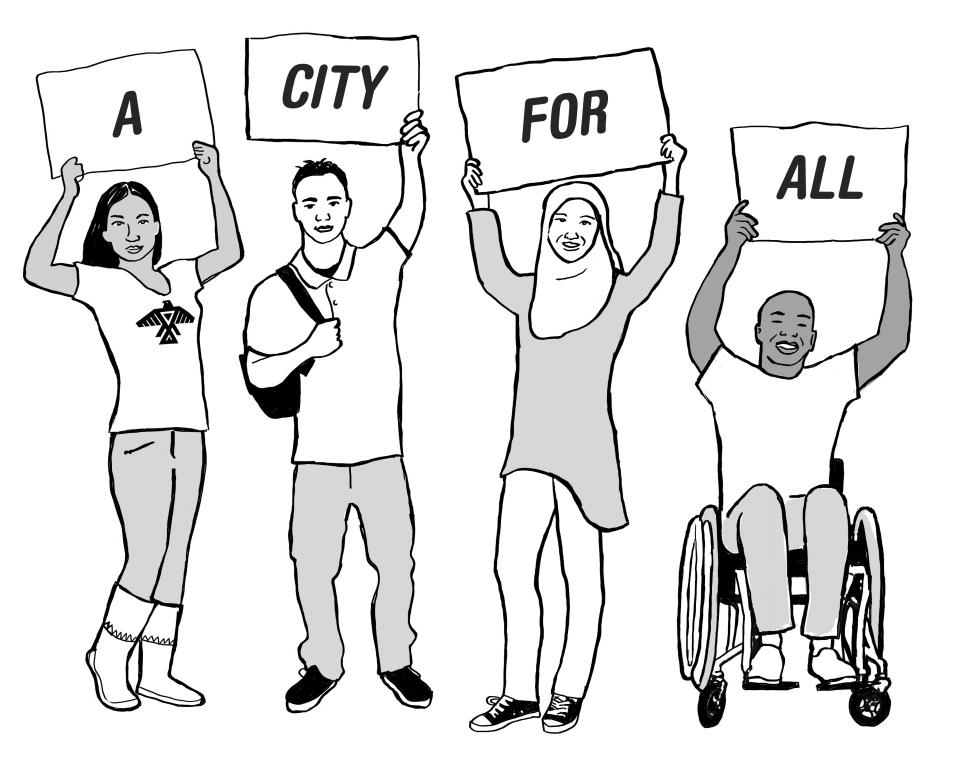ISSUES THAT MATTER

AFFORDABLE HOUSING
In a City for All, everyone has an affordable place to call home.
Why It Matters· Overall shelter use increased by 16% from 2014-2017. This is primarily influenced by the increase in family and newcomer shelter use.
· Up to 21% of single shelter users in Ottawa are single women.
· There is not enough affordable housing in Ottawa to meet demand, with over 10,000 people on the Centralized Waiting List for social housing in 2017.
· National trends indicate that housing costs significantly increase near rapid transit systems.
· High rent costs place many individuals at risk of homelessness or living in sub-standard conditions.
We Believe That· In a City for All, everyone has an affordable place to call home.
Questions to Ask· Will you ensure that the City’s plan to reduce homelessness has specific actions, targets and money attached?
· Will you commit at least $12 million/year of City funding, over and above federal and provincial grants, to build new affordable housing?
· Will you ensure that 25% of new development is dedicated to affordable housing with a special emphasis on deeply affordable housing within 1km of rapid transit stations?
But the Reality Is Troubling· Overall shelter use increased by 16% from 2014-2017. This is primarily influenced by the increase in family and newcomer shelter use.
· Up to 21% of single shelter users in Ottawa are single women.
· There is not enough affordable housing in Ottawa to meet demand, with over 10,000 people on the Centralized Waiting List for social housing in 2017.
· National trends indicate that housing costs significantly increase near rapid transit systems.
· High rent costs place many individuals at risk of homelessness or living in sub-standard conditions.

SAFE AND AFFORDABLE TRANSIT
In a City for All, everyone has access to safe and affordable transit so they can access jobs, services and participate in their communities.
Why It Matters· In the last five years, transit prices have increased a lot more than the inflation rate.
· Since 2008, transit fares have increased by 40%.
· Since 2011, OC Transpo ridership has fallen by 6.7%.
· With higher transit fares, some women end up walking in unsafe situations or remain isolated at home.
· EquiPass is a monthly adult pass for people living on low income, but it is still unaffordable for many.
We Believe That· In a City for All, everyone has access to safe and affordable transit so they can access jobs, services and participate in their communities.
Questions to Ask· Will you reduce EquiPass fare from $58/month to $43/month no later than 2019?
· Will you freeze transit fares to make them more affordable for everyone?
But the Reality Is Troubling· In the last five years, transit prices have increased a lot more than the inflation rate.
· Since 2008, transit fares have increased by 40%.
· Since 2011, OC Transpo ridership has fallen by 6.7%.
· With higher transit fares, some women end up walking in unsafe situations or remain isolated at home.
· EquiPass is a monthly adult pass for people living on low income, but it is still unaffordable for many.

ACCESS TO SERVICES
In a City for All, everyone has access to social services.
Why It Matters· Ottawa has a growing, aging, increasingly diverse population.
· Social services play a key role to decrease crimes and enhance wellbeing and belonging.
· In 2017 City Budget, the City- funded social service providers requested $2.8 million to address growing demands and emerging needs. This shows the size of the problem and the need to increase community funding.
· In a 2018 survey to City-funded social service providers conducted by Social Planning Council, 87% of respondents reported an increase in demand for services, 44% reduced services, 18% turned clients away.
We Believe That· In a City for All, everyone has access to social services.
Questions to Ask· Will you ensure that community and city social services have sufficient funding to keep pace with the growing demand?
· Will you raise taxes as needed in order to meet the unmet and emerging needs of our increasingly complex city (i.e. housing, transit, social services)?
But the Reality Is Troubling· Ottawa has a growing, aging, increasingly diverse population.
· Social services play a key role to decrease crimes and enhance wellbeing and belonging.
· In 2017 City Budget, the City- funded social service providers requested $2.8 million to address growing demands and emerging needs. This shows the size of the problem and the need to increase community funding.
· In a 2018 survey to City-funded social service providers conducted by Social Planning Council, 87% of respondents reported an increase in demand for services, 44% reduced services, 18% turned clients away.

INCLUSIVE CITY
In a City for All, regardless of race, gender, ability, religion and gender identity, everyone has opportunities to succeed.
Why It Matters· People who are Indigenous, immigrants, racialized, living with disabilities and trans are more likely to be unemployed, with lower salaries and less opportunities for advancement.
· In comparison to men, women are more likely to have higher rates of unemployment, over-representation in part-time jobs and higher rates of poverty. On average women earn 87 cents to the dollar earned by men.
We Believe That· In a City for All, regardless of race, gender, ability, religion and gender identity, everyone has opportunities to succeed.
Questions to Ask· In order to have City staff and managers, that are representative of Ottawa’s population, will you increase hiring and advancement of people from equity seeking groups including Indigenous people, women, racialized people, LGBTQ, people with disabilities and newcomers?
· City Council has voted to study the creation of a Women’s Bureau in the City. Will you support the creation of a Women’s Bureau to ensure gender differences are taken into account in city decision making?
But the Reality Is Troubling· People who are Indigenous, immigrants, racialized, living with disabilities and trans are more likely to be unemployed, with lower salaries and less opportunities for advancement.
· In comparison to men, women are more likely to have higher rates of unemployment, over-representation in part-time jobs and higher rates of poverty. On average women earn 87 cents to the dollar earned by men.